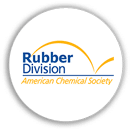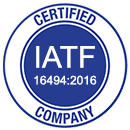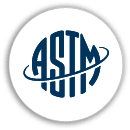ASTM D6602: Testing of Plasticizers Used in Poly(Vinyl Chloride) (PVC) Plastics
ASTM D6602 is a standard practice developed by ASTM International that provides guidelines for sampling and testing plasticizers used in polyvinyl chloride (PVC) plastics. Plasticizers play a crucial role in modifying the flexibility, durability, and processing characteristics of PVC materials.
By following ASTM D6602, manufacturers ensure that plasticizers meet the required quality and performance standards, allowing for consistent product manufacturing and regulatory compliance.
Purpose and Importance of ASTM D6602
The key objectives of ASTM D6602 include:
- Ensure Plasticizer Quality: Establishes standard procedures for verifying plasticizer purity and performance.
- Support Consistency in PVC Products: Helps manufacturers maintain uniformity in PVC-based materials such as films, sheets, coatings, and molded products.
- Regulatory Compliance: Ensures that plasticizers used in medical, construction, and consumer products meet safety and quality standards.
- Optimize Material Properties: Guides industries in selecting the right plasticizer formulations for specific applications.
Key Test Procedures in ASTM D6602
The ASTM D6602 standard outlines procedures for sampling and testing plasticizers to determine their suitability for PVC formulations. The key steps include:
1. Sampling Methods
- Representative Sampling: Ensures the collected plasticizer sample accurately represents the bulk material.
- Contamination Prevention: Samples are handled in a controlled environment to avoid contamination from air, moisture, or external impurities.
2. Physical and Chemical Property Testing
ASTM D6602 includes several tests to evaluate plasticizers:
| Test | Purpose |
|---|---|
| Specific Gravity | Determines the density of the plasticizer. |
| Viscosity Measurement | Assesses flow behavior for processing applications. |
| Volatility Testing | Measures weight loss due to evaporation under heat. |
| Compatibility Testing | Evaluates plasticizer-PVC interaction. |
| Moisture Content | Ensures plasticizers are free from excessive water contamination. |
3. Plasticizer-PVC Compatibility Assessment
- The plasticizer is mixed with PVC resin to evaluate dispersion, absorption, and final product flexibility.
- Any phase separation or instability indicates poor compatibility.
4. Thermal Stability & Aging Tests
- The plasticizer’s thermal resistance is tested under elevated temperatures.
- Aging simulations help determine long-term performance in harsh environments.
Factors Influencing ASTM D6602 Test Results
Several factors impact the performance of plasticizers in PVC:
- Plasticizer Type: Phthalate, adipate, citrate, and bio-based plasticizers have different chemical behaviors.
- Temperature Sensitivity: Some plasticizers degrade at higher processing temperatures.
- Migration and Volatility: Plasticizers that evaporate or migrate can reduce product lifespan.
- Environmental Exposure: UV light and moisture can alter plasticizer performance.
Applications of ASTM D6602
Plasticizers tested under ASTM D6602 are used in a wide range of PVC-based products, including:
- Medical Devices: Flexible tubing, blood bags, and IV bags.
- Construction Materials: Vinyl flooring, roofing membranes, and wall coverings.
- Consumer Products: Shower curtains, synthetic leather, and inflatable products.
- Automotive Components: Soft dashboards, interior trims, and wire insulation.
- Packaging Films: Flexible plastic wraps and shrink films.
Benefits of ASTM D6602 Compliance
- Ensures Product Consistency: Standardized testing results in reliable PVC formulations.
- Enhances Durability: Helps manufacturers select plasticizers that improve product longevity.
- Reduces Production Issues: Prevents defects like incompatibility, migration, and poor thermal resistance.
- Supports Environmental and Safety Regulations: Ensures plasticizers comply with health and environmental standards.
Challenges in ASTM D6602 Testing
- Material Variability: Different plasticizer types require specific testing conditions.
- Equipment Requirements: Specialized analytical instruments are needed for testing.
- Regulatory Compliance: Evolving restrictions on phthalate-based plasticizers require constant adaptation.








